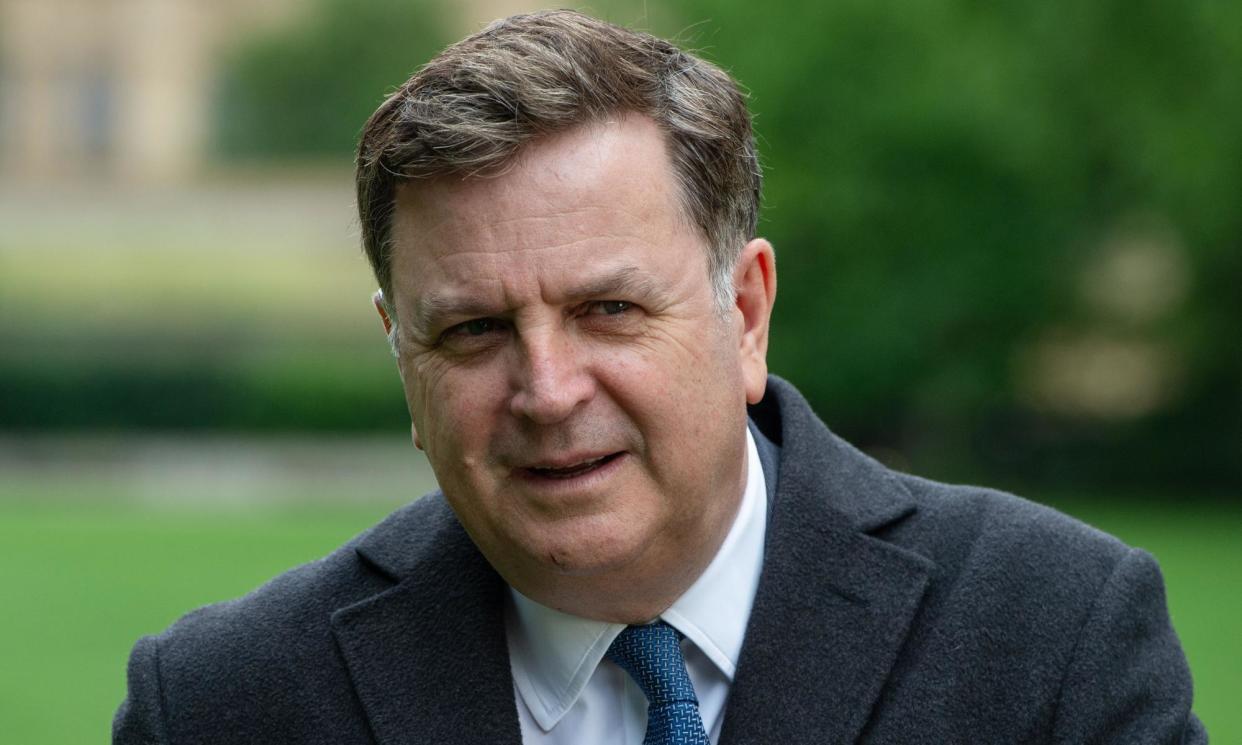Minister says Tories will pay for pensions policy by clamping down on tax avoidance

The work and pensions secretary has said Labour will drag millions of older people into paying income tax while the Conservatives can “comfortably” raise the money for their proposed cuts for pensioners by clamping down on tax avoidance.
Under the Conservatives’ “triple lock plus” proposal , “millions of pensioners will get tax cuts worth hundreds of pounds over the next parliament”, Mel Stride told BBC Radio 4’s Today programme.
It is the second big policy announcement of the election campaign by the Tories after their proposal to bring in national service for 18-year-olds. The pledge involves a £2.4bn tax cut for pensioners, who would get a personal tax allowance that would always rise in line with the triple lock, so that the allowance would always be higher than the state pension.
Stride said: “Labour have described it as ‘desperate’ which I find quite extraordinary. By leaving the situation as it is at the moment we will see, by 2027, millions of pensioners being dragged into paying income tax. That’s what you’ll get under Labour.”
Reminded that the Conservatives had frozen the tax thresholds in the first place, and that the proposals were merely undoing something they did, Stride said: “We did have to freeze some thresholds as part of paying down what was £400bn that we spent, quite rightly, to protect people up and down the country, to make sure they could cope with the cost of living crisis that’s been difficult for us all as a consequence of Covid and high inflation because of the war between Ukraine and Russia.”
He said they had taken “the bold and difficult decisions” to get the economy growing and bring down inflation. “What we are making a priority today is to cut the taxes of pensioners.”
He told Times Radio: “£2.4bn is the cost at the end of the parliament. We can comfortably raise £6bn from clamping down on tax avoidance and evasion and that figure, in fact, is very much in line with the kind of figures that we’ve achieved in the past. And in fact, the head of the National Audit Office has actually stated that that number is achievable and that is where the fully funded costing will be met.”
Asked how the Conservatives would pay for this and its national service policy, he said: “It’s £2.5bn per year, which will be £1bn coming from avoidance and evasion and one and a half coming from levelling up funding, so that’s where you get the two and a half.
“So we’ve got six [billion] that we’re saving through avoidance and evasion … £1bn of that is going into the national service and the remainder is going to fund this important tax cut for our pensioners.”
Earlier Paul Johnson, the director of the Institute for Fiscal Studies described the Tory proposal on pensions as “simply a reversal of a tax increase that the Conservatives proposed”.
“Pensioners used to have a bigger personal allowance than people of working age – it was the Conservatives who got rid of it,” he told the Today programme. “So this is one of many examples actually of tax policy that has been reversed by the same government. George Osborne got rid of it in the 2010s when the personal allowance of people under pension age continued to rise.
“So one of the consequences of that, actually, is that the point at which pensioners currently start to pay tax is below where it was in 2010, whereas the point at which the rest of us start to pay tax is well above where it was in 2010.”

 Yahoo News
Yahoo News 
